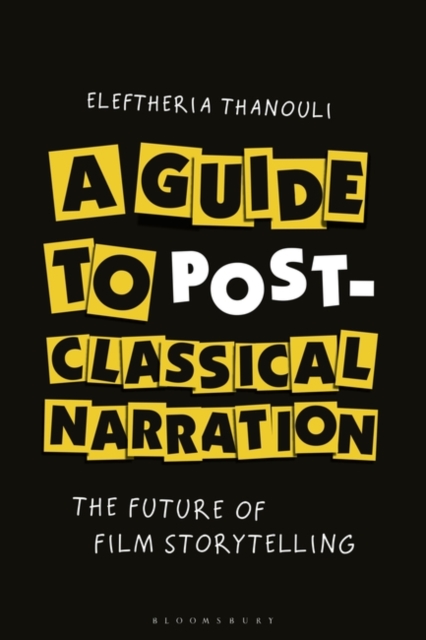
A Guide to Post-classical Narration : The Future of Film Storytelling Paperback / softback
by Dr. Eleftheria (Aristotle University of Thessaloniki, Greece) Thanouli
Paperback / softback
Description
In A Guide to Post-classical Narration, Eleftheria Thanouli expands and substantially develops the innovative theoretical work of her previous publication, Post-classical Cinema: an International Poetics of Film Narration (2009). A Guide to Post-classical Narration: The Future of Film Storytelling presents a concise and comprehensive overview of the creative norms of the post-classical mode of narration.
With dozens of cases studies and hundreds of color stills from films across the globe, this book provides the definitive account of post-classical storytelling and its techniques.
After surfacing in auteur films in varied production milieus in the 1990s, the post-classical options continued to gain ground throughout the 2000s and 2010s, gradually fertilizing several mainstream productions in Hollywood.
From Lars von Trier’s Europa (1991) to Zack Snyder’s Army of the Dead (2021) and Baz Luhrmann’s Elvis (2022), the post-classical narration has shown not only impressive resilience but also tremendous creativity in transforming its key formal principles, such as fragmented and multi-thread plotlines, hypermediated realism, parody, graphic frame construction, complex chronology, and intense self-consciousness.
Through the meticulous textual analysis of the post-classical works, Eleftheria Thanouli addresses head-on a series of methodological questions in narrative research and brings the tradition of historical poetics back into the limelight.
By reinforcing her previous work with numerous new films as well as more nuanced narrative terms and concepts, she not only strengthens her position on post-classical cinema but also establishes the relevance of formalist analysis in the study of film today.
Information
-
Less than 10 available - usually despatched within 24 hours
- Format:Paperback / softback
- Pages:288 pages, 297 colour illus
- Publisher:Bloomsbury Publishing Plc
- Publication Date:14/12/2023
- Category:
- ISBN:9781501393075
£28.99
£25.65
Information
-
Less than 10 available - usually despatched within 24 hours
- Format:Paperback / softback
- Pages:288 pages, 297 colour illus
- Publisher:Bloomsbury Publishing Plc
- Publication Date:14/12/2023
- Category:
- ISBN:9781501393075






